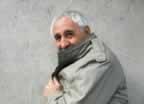August 08, 2005
PETIT MANUEL DES JOUISSANCES
jouissance de l’anticipation
jouissance de la préparation
jouissance des précautions
jouissance des gencives
jouissance du chatouillement
jouissance de la caresse
jouissance du léchage
jouissance du doigt dans le trou
jouissance de la bouche
jouissance des doigts de pied
jouissance du va et vient
jouissance de la petite douleur
jouissance des yeux fermés
jouissance de l’oreille mouillée
jouissance de l’odeur humide
jouissance de la stimulation
jouissance de la simulation
jouissance du refus simulé
jouissance du redépart
jouissance des petits cris
jouissance de l’humidité
jouissance de la petite mort
jouissance de la cigarette
jouissance de la fatigue
jouissance du sommeil lourd
jouissance du rêve rétrospectif
THAT ROPE AROUND THE NECK OF LUCKY...
 On April 22, 1956, I wrote in my notebook: One day I'll write a book about this Thomas Becket guy.
On April 22, 1956, I wrote in my notebook: One day I'll write a book about this Thomas Becket guy.I had no idea who Samuel Beckett was when I first saw Waiting for Godot. And I didn't understand a damn thing about what was going on, or not going on in that play. And I didn’t really care, one way or the other. For that day, I felt as if I had had a revelation. Not a very clear one. Not one that specifies the way to go now. But something clicked that day. Or, as Arsene explains to Watt, something slipped ... suddenly somewhere some little thing slipped some little tiny thing ... It was a slip like that I felt .... millions of little things moving all together out of their old place, into a new one nearby, and furtively, as though it were forbidden.
In the French version Beckett put it this way:
... soudain quelque part il glissa quelque chose, une petit quelque chose, un infime quelque chose .... c’est ce genre de glissement que je ressentis ... des millions de petites choses s’en allant toutes ensemble de leur vieille place dans une nouvelle tout à côté, et sournoisement, comme si c’était défendu.
When I first saw Lucky enter the stage with that long rope tied around his neck which extended off-stage before Pozzo appeared, and as I stared at Lucky bent under the weight of what he was carrying and the rope pulling at his neck, I thought, what courage, what daring, what guts this writer has to show us something so horrible and yet make us laugh.
Yes, I heard laughter in the theater when Lucky entered on stage. He was such a preposterous figure. And I heard that laughter every time I saw Lucky enter on stage with that rope around his neck. I think that’s what caused the slip in me. That rope around the neck of Lucky.
It felt as if that rope was around my neck. Holding me back from where I was supposed to go. And yet, I too laughed.
This is how Beckett wrote the stage directions: Pozzo drives Lucky by means of a rope passed round his neck, so that Lucky is the first to appear, followed by the rope which is long enough to allow him to reach the middle of the stage before Pozzo appears. Lucky carries a heavy bag, a folding stool, picnic basket and a greatcoat. Pozzo a whip.
It took many years for me to understand what had slipped in me when I first saw Waiting for Godot. But when I understood what it was, I also understood how I must write my books – write them with a sense of the horrible mixed with laughter. What I eventually called Laughterature.

